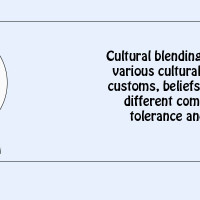- Thursday, 30 October 2025
Libraries For Education
In today's dynamic educational landscape, libraries have transformed significantly, expanding their role far beyond traditional book repositories. They have evolved into dynamic educational hubs, providing diverse resources and services tailored to meet various learning needs. Libraries have successfully transitioned to meet the rapid changes in technology and educational needs by fully embracing digital transformation.
Once recognised for their extensive physical collections of books and manuscripts, libraries now prioritise an array of digital resources including e-books, online databases, and multimedia content. This transformation has been fueled by the increasing demand for immediate access to information and the necessity for advanced research tools. By integrating technology through offerings such as computer labs, internet access, and virtual learning platforms, libraries are ensuring their continued significance as educational hubs. Not only does this shift expands the accessibility of library resources, but it also supports diverse learning styles and aligns with the demands of the digital age.
Libraries today have seamlessly integrated technology to improve their educational offerings and accessibility. They now have computer labs with the latest hardware and software, providing users with tools for research, writing, and digital projects. Online databases give access to a wide range of academic journals, articles, and e-books, expanding research capabilities beyond traditional print collections. In addition, libraries use digital learning tools such as interactive tutorials, virtual reality resources, and educational apps, offering diverse learning experiences and supporting digital literacy. This integration not only modernises library services but also meets the evolving needs of today’s learners by fostering academic success and intellectual growth.
Moreover, modern libraries are a treasure trove of knowledge, offering advanced technology that encourages personal growth and academic success. They provide personalised tutoring, workshops on research methods, academic writing, and citation practices to help students acquire vital skills. Information literacy programmes are also available to teach users how to effectively find and evaluate information. Libraries often partner with schools to integrate library resources into the curriculum, providing students with access to specialised materials and research support which leverage the strengths to create enriched learning environments and support student achievement.
Libraries have evolved into dynamic learning hubs that are indispensable to education. Through tutoring, workshops, and information literacy programmes, libraries have helped develop essential academic skills. Their collaborative efforts with schools and educational organisations have further enhanced learning opportunities.
However, in the modern educational environment, libraries face several challenges that impact their effectiveness and reach. Funding limitations have frequently restricted their capability to modernise resources, uphold facilities, and introduce new technologies. The digital gap poses an additional obstacle by hindering communities from fully benefiting from library services due to unequal access to technology.
Despite the challenges, libraries are continually adapting and innovating, highlighting their essential role in promoting educational success and lifelong learning. Libraries are on the brink of transformative changes fueled by technological advancements. Digital libraries are becoming more common and this means people can get academic materials and interactive content from anywhere in the world. Artificial intelligence is going to change personalised learning by offering tailored recommendations and research help. New educational technologies like virtual reality and augmented reality are going to make learning more immersive, so people can interact with information in different ways.
Therefore, to ensure the continued success of libraries as essential educational resources, it is crucial for individuals to actively show their support for local libraries. Libraries also must continually adjust to keep pace with technological advancements and evolving educational needs, providing valuable resources and services to meet the changing demands of students and educators.

















